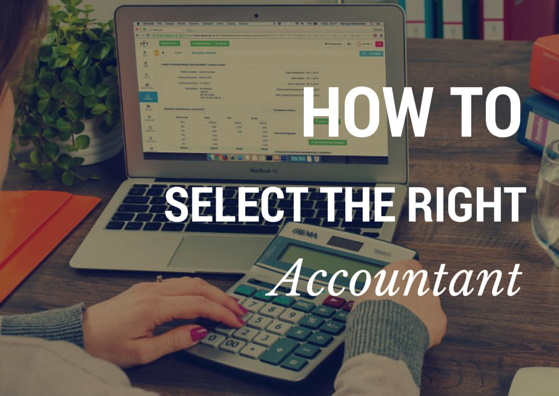
How to select the right accountant
Finding a good accountant is difficult, especially one who understands your business’s unique needs. Here is how to select the right accountant for your business.
First and foremost, what does an accountant do? He or she is responsible in looking after the company’s financials. This includes:
- prepares company’s financial statement
- analyses costs/expenses, revenues and profits
- assists with budget preparation
- improves financial efficiency
- advises on financial products
- identifies budget variances and prepares reports
- prepares and executes any tax related activities, including filing paper work, VAT submissions.
- financial and operational audits
Some accountants may also perform:
- Payroll
- Payments and collection
- Procurement and inventory
- Property accounting (your fixed assets)
Accountants play a crucial part in the success of a business. They can offer helpful advice such as:
- Company structure (e.g. private limited, partnership etc.)
- How to best structure the accounts according to business needs
- Advise on taxation matters
- Advise business on whether to lease or buy a particular asset.
- Recommending the right financial product that would be suitable for the business needs
- Taking Proactive action with impending changes to External Rules and Regulations that impact the business
So, yes it is crucial to have an accountant. So now, how do you go about selecting one?
Full time, In-house or outsource
As a small/medium business owner, cost is the key consideration. You may not need a full time accountant. There are many accounting firms out there that provide accounting services and this could be just the right solution for you. However, you need to choose the accounting firm that you can trust with your financial information and someone whom you could work with in the long run.
Relevant experience, certified or chartered accountant
Ensure that your accountant is certified by a professional body, i.e. CPA (Certified Public Accountants) or CA (Chartered Accountants). It is preferable that the account should also has the relevant experience working in a similar business to yours or at least has experience in in the same sector as yours. This is to help ensure that your accountants understand your business unique need sand, can set up your company right from the start and able to serve well as the company grows over time.
Be clear on his/her role and responsibilities
As mentioned above, the Accountant has a wide range of responsibilities. Ensure your accountant has the necessary skill and experience to help you with current and future needs. Any simple accounting task that can be done in house will reduce accountant costs and will also give the business a better grasp of the company’s financial situation in real time and a heads-up on potential issues. These include book keeping, payments and collection.
Accounting software, offline or online?
If you decide to engage a third party accountant, your accountant’s software may play part of your selection process.
Would you like your accounts to be accessible online, 24/7?
If yes, then ensure your accountant use cloud accounting platform so that you have access to your accounts anytime you need to.
Can your accounting software be able to export data and information easily to for your accounts to import to their software?
If the 2 systems cannot match or share information it will create a lot of heavy operational and administrative work.
Thoughtful accountant
Your accountant should be proactive in helping your company save money. You may be able to suss this out during the initial meeting with your prospective accountants.
What can you do to offset your tax?
Which financial instrument will be the most cost effective for the company?
What should the business owner do with excess cash?
Accountants help business owners keep a tight rein on the company’s operations and finances while you are busy trying to grow your business. Good accountants can manage your complex finance as well as help the business thrive. Pick the ones that you feel have the right skill/experience and you can trust with all the intimate details about your business.
Related articles
Related Articles

Boosting Your Business: Top Strategies for Improving Cash Flow

Alternative Financing for Businesses in Singapore: Exploring Diverse Funding Options
